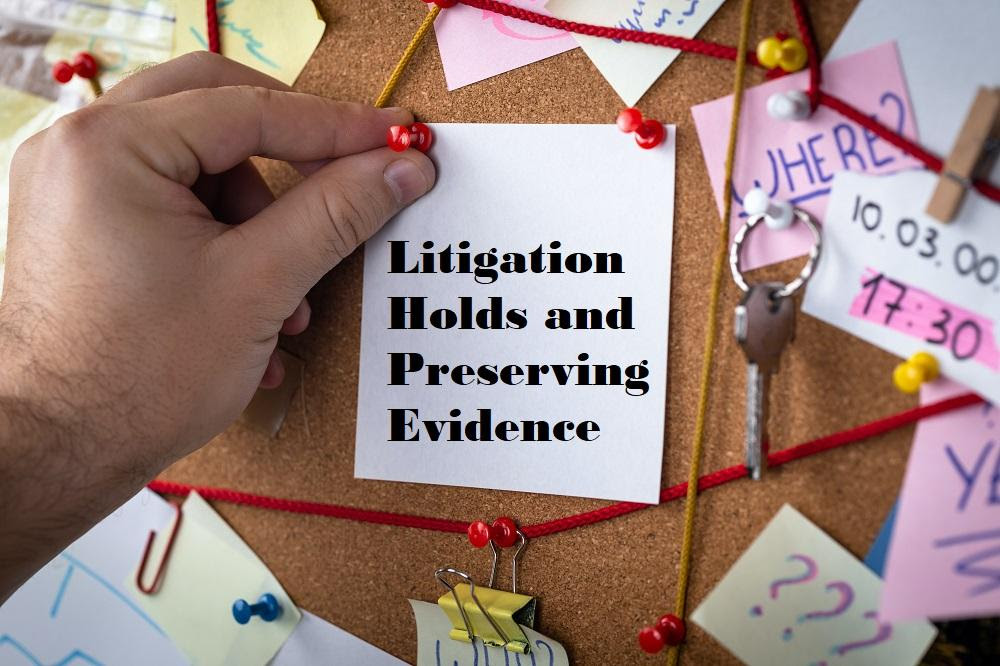Did you know that your failure to retain all relevant materials after litigation is “reasonably anticipated” could result in you being fined or sanctioned by the court? You may even lose the case as a result of failure to preserve evidence.
In one cautionary example, a federal court imposed a $10,000 fine on defendants who failed to preserve relevant text messages. The defendants were also ordered to pay all reasonable expenses that the plaintiff (Prince’s estate) incurred as a result of the misconduct. Further, the court reserved the right to later impose an “adverse inference” instruction. In such situations, a court might, for example, instruct the jury to assume that the missing evidence would have been unfavorable to the defendants.
In this particular case, after several months passed, the court held the defendant business and its sole owner, Matthew Wilson, in contempt for failure to comply with the court’s order. The court even directed an arrest warrant for Wilson to issue but stayed execution of the warrant to provide the defendants an opportunity to “purge their contempt.”
Prince’s estate had sued the defendants for copyright infringement, after first sending a cease and desist letter. As part of the discovery process, the plaintiff sought all relevant “documents” from the defendants, but it later came out that a number of text messages could not be produced because not only did the defendants fail to disable the auto-delete function on their phones, but even though they were aware of the copyright dispute, they wiped and changed their phones without backing up the data.
The court held that the defendants had acted with “the intent to deprive” in failing to preserve text messages. These text messages could not be obtained through any other means, so the court also held that the plaintiff was harmed as a result of the defendants’ actions.
How do you know when “litigation is reasonably anticipated?” While there are some grey areas, the filing of a complaint unquestionably triggers the duty to preserve, as does the receipt of a “preservation” notice or letter from the opposition.
Some courts have held that the sending or receipt of a demand letter requires that materials be preserved. Even the occurrence of an event (such as a car accident, an on-the-job injury or a data breach) could trigger the need for a litigation hold.
To be prudent, any time you’re involved in a dispute, you should retain everything that you believe could be relevant to that dispute. This includes all documents, contracts, emails, voice mail messages, bills, photographs, text messages, and the like.
If the dispute relates to you as an individual, it’s usually fairly simple to retain the relevant materials, but if your dispute involves your business, there are numerous steps that must be taken.
First, you need to issue a written litigation hold notice, which should be sent to all personnel who might have relevant records, including IT personnel.
The “litigation hold” should advise employees to preserve all relevant materials and provide information that will help employees comply, such as the nature of the dispute and the relevant date range. You must then make sure that all personnel are, in fact, implementing the hold.
Remember that, at least with respect to materials relevant to the dispute, destruction pursuant to your business’s document retention policy must be suspended.
For example, if the policy provides that emails will be automatically erased after 30 days and hard copy files will be shredded after a year, you’ll have to make arrangements to stop the automatic erasure of emails as well as the document shredding.
Whether the dispute relates to you as an individual or to your business, you should also be sure to notify any third parties that might have relevant material, such as your accountant, to retain items relating to the dispute.
Please feel free to contact us if you have any questions about litigation holds or if you need help creating a document retention policy for your business.
Photo by Volodymyr Hryshchenko on Unsplash






